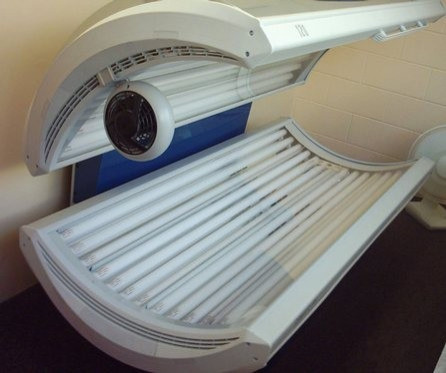FDA Approves 'Revolutionary' Melanoma Treatment
New Drug Slows Cancer Growth

The U.S. Food and Drug Administration (FDA) Wednesday approved drug, Zelboraf, for the first-line treatment of both metastatic and unresectable melanomas, reportedly the most dangerous type of skin cancer.
This has been an important year for patients with late-stage melanoma. Zelboraf is the second new cancer drug approved that demonstrates an improvement in overall survival, said Richard Pazdur, M.D., director of the Office of Oncology Drug Products in the FDA's Center for Drug Evaluation and Research.
According to the agency, BRAF protein is normally involved in regulating cell growth, but is mutated in about half of the patients with late-stage melanomas.
In March, the FDA approved the sale of Yervoy, another treatment for late-stage melanoma that has been proved to help patients live longer. Zelboraf is a BRAF inhibitor that is able to block the function of the V600E-mutated BRAF protein, health regulators add.
In clinical trials, the drug decreased the risk of death among melanoma patients with the BRAF mutation by 64 percent compared with people using standard chemotherapy.
The length of time a patient lives after receiving Zelboraf has not been reached, authors said, 77 percent still lived, while 64 percent of those who received dacarbazine lived for eight more months.
The most common side effects reported in Zelboraf users included joint pain, hair loss, fatigue, nausea and skin sensitivity when exposed to the sun.
About 26 percent of patients developed a skin-related cancer called cutaneous squamous cell carcinoma that is manageable with surgery, leading the FDA to warn Zelboraf patients to avoid sun exposure.
“Today’s approval of Zelboraf and the cobas test is a great example of how companion diagnostics can be developed and used to ensure patients are exposed to highly effective, more personalized therapies in a safe manner,” said Alberto Gutierrez, Ph.D., director of the Office of In Vitro Diagnostic Device Evaluation and Safety in the FDA’s Center for Devices and Radiological Health.
Although Roche is promoting Zelboraf in the U.S. with Daiichi Sankyo, The Wall Street Journal reports that the company owns the world-wide commercial rights to the drug.
Roche already distributes an arsenal of cancer drugs - such as Avastin, Herceptin and Rituxan - which accounts for 35 percent of the pharmaceutical giant's $74.8 billion total revenue.
The National Cancer Institute estimates that more than 70,000 new cases of melanoma will be diagnosed in the U.S. during 2011, leading to approximately 8,790 fatalities.
© Copyright IBTimes 2024. All rights reserved.





















